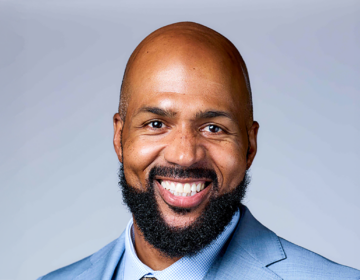Should Philly parents worry about fiscal woes of for-profit charter operator?
A federal judge has ordered the heavily indebted Mosaica Education Inc., a for-profit charter school management organization, to accept a turnaround receiver.
Mosaica, which contracts with more than 100 schools to serve 25,000 students in the U.S. and abroad, carries a $20 million debt load with its lender, Tatonka Capital.
Tatonka sued Mosaica Education Inc. in September after it defaulted on its debt. In a ruling last week, U.S. District Judge Timothy Batten authorized Katie Goodman of GGG Partners, LLC, to be Mosaica’s turnaround receiver.
Does this spell trouble for Mosaica’s individual schools?
“No. I do believe Mosaica is sound,” said Tanya Glenn-Butler, who heads Birney Preparatory Academy, Mosaica’s lone school in Pennsylvania.
“We’re actually working collaboratively with them, keeping our focus on student achievement,” she said.
The Philadelphia School District turned Birney Elementary over to Mosaica in 2011 through its Renaissance initiative, which asks charters to serve all children who live within defined neighborhood boundaries.
Birney’s transition has been mixed. Math and reading standardized test scores have risen, but so has the rate of violent incidents and offenses.
Glenn-Butler said the K-8 school is still a good bet for the 720 students they serve.
“We have exceptional faculty. We have a wonderful, outstanding leadership team, and we are very much supported in a positive way by Mosaica,” she said.
A spokesman for Mosaica’s corporate offices could not be reached for comment.
Helen Gym, leader of Parents United for Public Education, said the “idea of an intervention for the operator who was supposed to be the intervention solution exposes massive fault lines in the charter savior idea.”
“The fact that Mosaica is now in the hands of a receivership means it is outside any level of public control and means that the sole obligation of the receivership is to protect the interest of the debtors while the families’ interests are incidental,” said Gym.
Mosiaca has also been making waves in York lately, where that city district’s chief recovery officer Dave Meckley, a Corbett administration appointee, had been advancing a plan to hand over the entire district to one of two charter management organizations, one of which was Mosaica.
Democratic gubernatorial candidate and York native Tom Wolf had opposed that plan, and the York school board rejected it on Oct. 16.
“The bottom line is that children should not be viewed as potential for profit. Their education needs should come ahead of corporate profits,” said Wythe Keever, spokesman for the Pennsylvania State Education Association, the state’s largest teachers union. “And eventually the York City community saw it the same way.”
In its proposal, Mosaica asked for 12.5 percent of the money that it would receive from York City Public Schools as a “management fee,” breaking down to more than $6.5 million in year one. Mosaica would not have been required to disclose how it spent that fee.
Mosaica and other for-profit managers have argued that they are more efficient than traditional school districts and that they succeed financially only when students do so academically.
The Philadelphia School District says it’s in the process of trying to understand “how Mosaica’s fiscal woes will impact Birney’s operations.”
In 2005, the state Charter Appeals Board shuttered the Mosaica-managed Ronald H. Brown Charter School in Harrisburg, citing, among other red flags, Mosaica’s fiscal management and its failure to help students meet performance standards.
In 2011, Mosaica found itself in the middle of controversy at Philadelphia’s Martin Luther King High School. Parents had voted for Mosaica to assume control of the school through the Renaissance program, but after winning approval from the School Reform Commission, Mosaica withdrew from consideration. Reports at the time found that state Rep. Dwight Evans successfully lobbied for Mosaica to lose on the deal, pushing instead his Foundations organization.
In the end, though, MLK remained under district control.
Correction: A previous version of this story stated that the SRC killed Mosaica’s deal with MLK HIgh.
WHYY is your source for fact-based, in-depth journalism and information. As a nonprofit organization, we rely on financial support from readers like you. Please give today.





